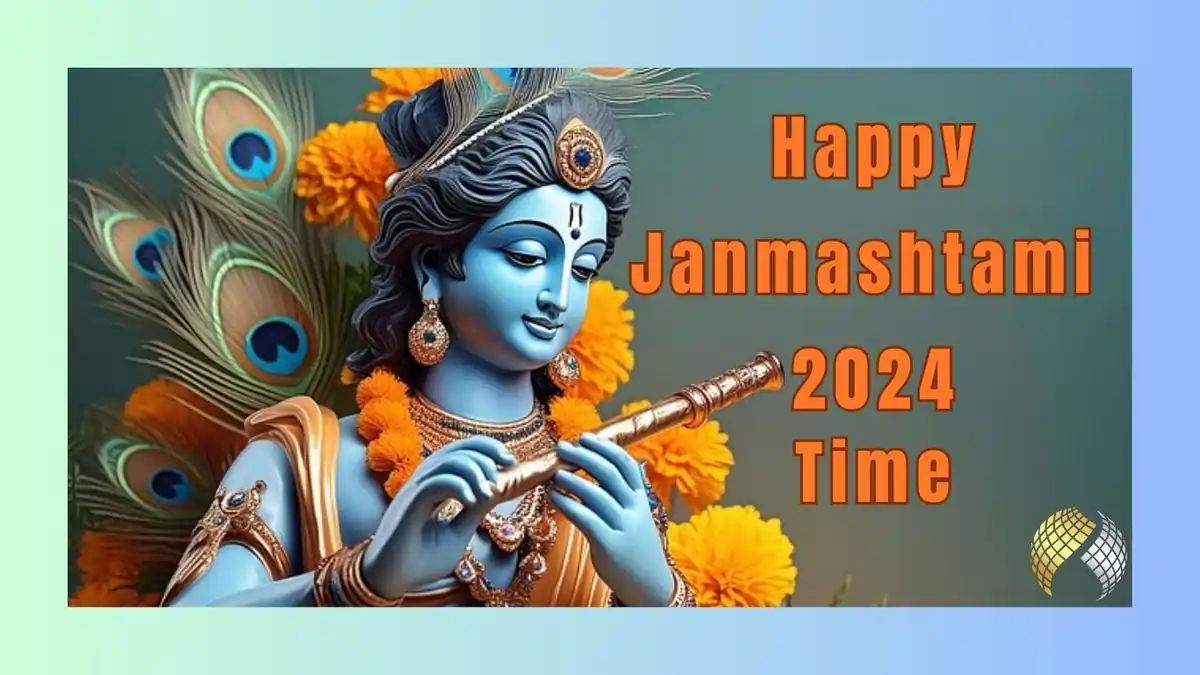Janmashtami 2024 Time: Long weekend alert: Due to a series of holidays, there will be a long weekend from Saturday, August 24, to Monday, August 26. The weekend begins with a bank holiday on Saturday, August 24. This is followed by Sunday, August 25, a regular weekend day.
On Monday, August 26, Janmashtami, a significant Hindu festival celebrating the birth of Lord Krishna, will be observed. As a result, banks and many businesses may remain closed on this day as well.
August 24-26: Long weekend bank holiday
Bank holiday on August 24 (Saturday): This marks the fourth Saturday of the month. As per standard banking holidays, banks across the country are closed on second and fourth Saturdays.
Bank holiday on August 25 (Sunday): A regular weekend day observed nationwide. Most businesses, including banks, are closed on Sunday.
Bank holiday on August 26 (Monday): This day is celebrated as Krishna Janmashtami, a major Hindu festival commemorating the birth of Lord Krishna.
During the long weekend from August 24 to August 26, banks will be closed in several states, including Gujarat, Orissa, Chandigarh, Tamil Nadu, Uttarakhand, Sikkim, Andhra Pradesh, Telangana, Rajasthan, Jammu, Uttar Pradesh, West Bengal, Bihar, Chhattisgarh, Jharkhand, Meghalaya, Himachal Pradesh, and Srinagar. This closure is in observance of the fourth Saturday of the month and Krishna Janmashtami on August 26.
However, banks will remain open in states like Tripura, Mizoram, Maharashtra, Karnataka, Assam, Manipur, Arunachal Pradesh, Kerala, Nagaland, New Delhi, and Goa.
Customers should know that bank holidays vary by state based on regional requirements. To avoid last-minute confusion and handle emergencies effectively, it is advisable to check the complete list of holidays with your nearest bank branch.
In India, the Reserve Bank of India (RBI) oversees the determination of bank holidays, which are categorized as follows:
Negotiable Instruments Act Holidays: These are days when regulations affecting negotiable instruments, such as checks and promissory notes, are in effect. Certain banking transactions involving these instruments may not be available these days.
Real-Time Gross Settlement (RTGS) Holidays: These refer to days when banks are closed for RTGS transactions, which facilitate instant money transfers between banks.
Account Closing Days: Each bank designates specific days for internal operations, including account reconciliation or annual closings. On these days, banks may be closed for these purposes.
| Event | Date and Time (2024) |
|---|---|
| Mid Night Moment | 12:24 AM, Aug 27 |
| Chandrodaya Moment | 11:22 PM, Aug 26 |
| Ashtami Tithi Begins | 03:39 AM, Aug 26 |
| Ashtami Tithi Ends | 02:19 AM, Aug 27 |
| Rohini Nakshatra Begins | 03:55 PM, Aug 26 |
| Rohini Nakshatra Ends | 03:38 PM, Aug 27 |
Krishna Janmashtami 2024: Origin and Significance
Janmashtami has been celebrated since the era of Lord Krishna’s birth, marking over 5,200 years of this ritualistic observance. In 2024, it commemorated the 5,251st anniversary of Lord Krishna’s birth according to Vedic time calculations.
The primary deity worshipped during Janmashtami is the infant form of Lord Krishna, known as Bal Gopal and Laddu Gopal; in addition to, lord Krishna’s biological parents, Vasudeva and Devaki, along with his foster parents, Nanda and Yashoda, and his siblings, Balabhadra and Subhadra, are also venerated during the celebrations.
This festival holds great significance as it celebrates the eternal love between the divine and his devotees. In historic cities like Mathura, Vrindavan, and Dwarka, Janmashtami is observed as a family member’s birth anniversary.
Krishna Janmashtami 2024: Celebrations and Rituals
Krishna Janmashtami is a joyous celebration that brings together devotees from all walks of life to honour the divine love and wisdom of Lord Krishna, across India, with each region having its unique traditions and customs.
In Mathura and Vrindavan, the birthplace of Lord Krishna, the festival is celebrated with grand processions, cultural programs, and the reenactment of Krishna’s life events.
In Gujarat and Maharashtra, the festival is known as Janmashtami or Dahi-Handi and Gokulashtami, respectively, with the breaking of the dahi-handi being the main attraction.
In West Bengal, Krishna Janmashtami is celebrated as Janmashtami or Krishnaashtami, with devotees offering flowers, sweets, and prayers to the deity.
In South India, the festival is known as Gokulashtami or Ashtami, with the celebration of Lord Krishna’s childhood mischief and his love for butter being the focal point.
During the celebrations, devotees fast, perform puja (worship), sing bhajans (devotional songs), and engage in various cultural activities. Many temples and households organise elaborate decorations, such as creating a small cradle for Lord Krishna and decorating it with flowers and colourful cloth.
Many devotees observe strict dietary restrictions and fasting during Krishna Janmashtami. Some refrain from consuming grains, while others avoid certain food items like onions, garlic, and non-vegetarian food.

